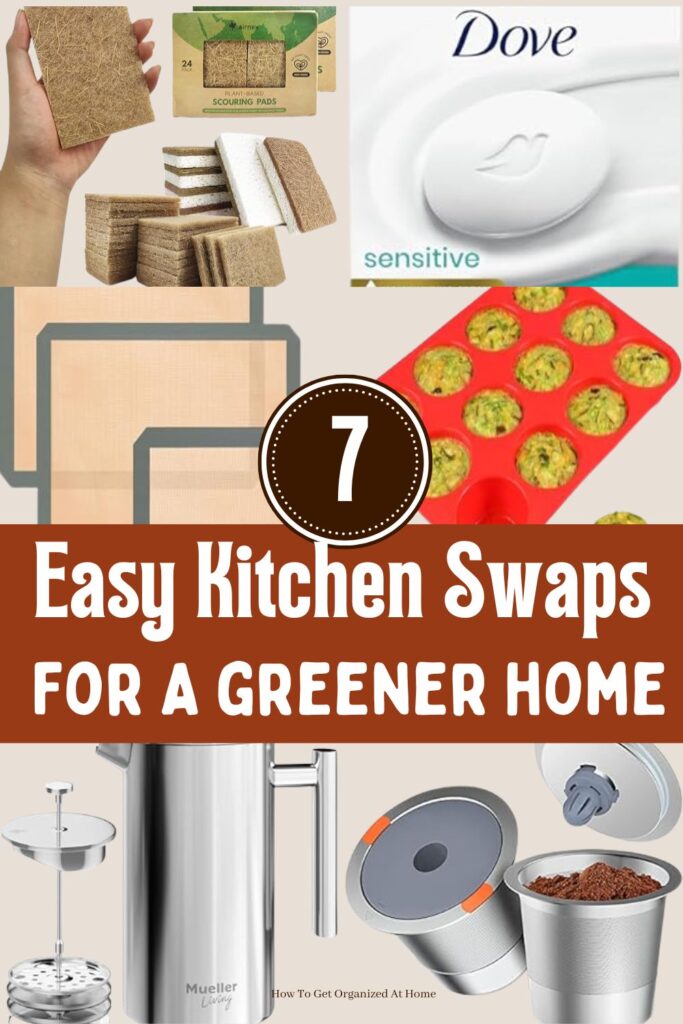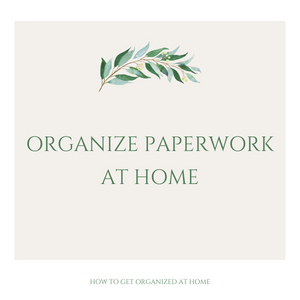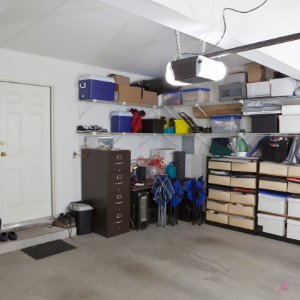7 Easy Kitchen Swaps To Make Your Home More Eco-Friendly
The kitchen is the heart of any home, but it’s also one of the biggest sources of waste. From paper towels to plastic containers, a lot of what we use ends up in the bin without a second thought.
Check out these 7 easy kitchen swaps and see which ones you can start with. You don’t have to do them all at once—just pick one or two that feel manageable. For me, Swap #2 was the easiest change to make in my own kitchen!
If you’re aiming for a zero-waste kitchen, you might think that swapping just 7 items isn’t enough. But remember—it’s a start, and that’s what matters. One step at a time adds up to lasting change for both your home and the planet.
The good news? Small swaps can make a big difference in how much you throw away—and in how eco-friendly your home feels.
Affiliate links are included for your convenience. (This means if you purchase after clicking a link I will earn a small commission which won’t cost you a penny more!) Click here to read my full disclosure and privacy policy.
Swap 1: Ditch Paper Towels for Reusable Cloths
Single-use products are wasteful—they’re used once and tossed away. That’s why switching from paper towels to reusable cloths is such a powerful swap.

Your options:
- Reusable “unpaper” towels that fit onto a regular paper towel holder
- Microfiber cloths for everyday cleaning
- Cotton rags cut from old t-shirts
These reusable choices are durable, washable, and will save you money over time.
Swap 2: Dishwashing Utensils for Eco-Friendly Options
Sponges and plastic dish brushes usually end up in landfill because they can’t be recycled. Instead, swap them out for natural, biodegradable options that work just as well.
Try these eco-friendly swaps:
- Bamboo brushes with coconut or sisal bristles
- Compostable sponges made from cellulose and coconut fibres
- Loofah sponges (plastic-free and fully compostable)
- Biodegradable cellulose compressed sponges
This was the first change I made in my own home—and it made a huge difference!
Swap 3: Plastic Containers for Glass or Stainless Steel
Plastic doesn’t decompose, and some types can even leach into food. That’s why many people are switching back to glass or stainless steel storage containers.
Options to try:
- Mason jars for leftovers and dry goods
- Pyrex glass dishes (they’ve been around for years for a reason!)
- Stainless steel lunch boxes for packed meals
- Stainless steel flasks for drinks
Not only are these safer for food, but they last much longer than plastic.
Swap 4: Disposable Coffee Pods for Reusable Options
Coffee pod machines are convenient, but those single-use pods create huge amounts of waste. Thankfully, you don’t have to give up your morning brew—just swap to a reusable option.
Better choices include:
- Refillable pods that work in most machines
- A French press for rich, flavourful coffee
- Reusable filter coffee makers
This small switch can save hundreds of pods from ending up in the bin each year.
Swap 5: Non-Stick Bakeware
This one was tough for me! I used to rely heavily on parchment paper and foil when cooking. But there are eco-friendly alternatives that work just as well.
Try these instead:
- Silicone baking mats and molds (reusable and easy to clean)
- Cast iron cookware (naturally non-stick when seasoned properly, though it is heavy)
With these swaps, you’ll save money on single-use baking paper and reduce your kitchen waste.
Swap 6: Single-Use Dish Soap Bottles
During the pandemic, liquid soap in plastic bottles became a household staple. But constantly buying new bottles adds up to a lot of unnecessary plastic.
Eco-friendly options include:
- Refillable glass or stainless steel bottles with bulk refills
- Solid soap bars that last for weeks
- Concentrated soap tablets or powders that you just add water to
Not only do these options reduce plastic waste, but many last longer than liquid soap in disposable bottles.
Swap 7: Plastic Utensils & Cutting Boards
Plastic cutting boards and utensils can break down over time, adding microplastics to your food. Swapping them for natural materials is better for your health and the planet.
Safer, eco-friendly alternatives:
- Bamboo cutting boards and utensils
- Wooden chopping boards (long-lasting and easy to maintain)
- Stainless steel cooking tools
These swaps are durable, safe, and look beautiful in your kitchen, too.
Your Eco-Friendly Kitchen Journey Begins Here
You don’t have to change everything today. It’s about starting small—making one swap, living with it, and then moving on to the next when you’re ready.
I started with soap and dishwashing detergent, and that was an easy switch for me. On the other hand, swapping my plastic dish brushes for bamboo ones felt harder at first. But with time, it got easier—and now I’m even replacing my sponges with loofah sponges.
Every swap matters. Each small change reduces waste, saves money, and creates a healthier home. Before long, these little shifts will add up to a kitchen that’s not just organized and functional, but eco-friendly too.
Which swap will you try first?
More Resources For Making Eco-Friendly Changes
It’s hard to change all at once, but making small changes in our homes can make a difference in the world we live in. Here are some more articles about making those changes in our homes and lives.









